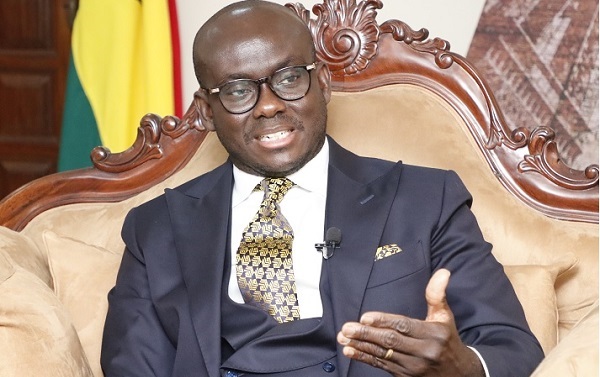The Attorney-General and Minister of Justice, Godfred Yeboah Dame, has highlighted the pressing need for reform in Africa's legal frameworks surrounding international arbitration.
He argued that the changing business landscape on the continent and the rise in the use of alternative dispute-resolution mechanisms in commercial contracts make it essential to review current practices.
Mr Dame pointed out that arbitration’s influence on African economies is significant. Still, it also presents risks, especially in its secrecy and the binding nature of awards, which can open doors to fraud and exploitation in certain cases.
He expressed concern that some companies, unable to win claims in African domestic courts, often succeed in international arbitration, sometimes through agreements that African countries haven't properly sanctioned.
This, he said, was not a result of weak African judicial systems but rather a reflection of the opaque and inflexible nature of international arbitration.
Delivering a keynote address at the African Regional Forum during the International Bar Association’s annual conference in Mexico City on September 19, 2024, he highlighted how arbitration often occurs outside Africa, in places like London, Paris, and New York. Even when disputes involve African parties, arbitration tends to follow foreign rules, which sidelines African arbitrators and hinders the development of arbitration expertise on the continent.
He cited a recent case in which Nigeria faced an arbitration award of over $11 billion, though this was later overturned by the London High Court.
Dame argued that Africa is frequently disadvantaged in international arbitration settings and emphasized the need for reform. However, he clarified that Africa should not shy away from arbitration altogether but should work toward creating a more secure and fair system. He suggested that African countries should aim to have international arbitrations held on the continent, governed by African laws, to ensure more transparency and control.
He also used Ghana as an example, where efforts are underway to amend laws to ensure that arbitration involving the state is governed by Ghanaian law and conducted in the country, rather than in foreign jurisdictions. This move aims to reduce the costs and challenges of arbitration abroad.
Global lawyers
Additionally, Dame called for global leaders and legal regulators to reconsider cross-border law practice regulations.
In today’s interconnected world, he said, law has taken on a global nature, and legal professionals should be able to operate beyond their home countries without being restricted by local licensing rules.
He proposed that legal frameworks should be rethought to allow lawyers from different jurisdictions to represent their nations in courts without facing unnecessary barriers.
Implications of AfCfTA
Finally, the AG discussed the implications of the African Continental Free Trade Area (AfCFTA) for legal practice in Africa. He noted that the creation of AfCFTA, which is expected to be the largest free trade zone globally, enhances the role of African lawyers in resolving disputes. He emphasized the importance of supporting AfCFTA’s Dispute Settlement Body and training African lawyers in the complexities of regional trade disputes.
According to him, the success of AfCFTA’s dispute mechanisms depends on the cooperation of legal professionals across Africa.
(Graphic)





